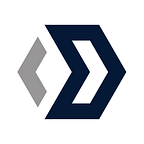Blocknet lists on Pangolin Exchange as $aaBLOCK
13 May, Cape Town — Blocknet tokens are now listed on Pangolin DEX in advance of the release of the Blocknet’s decentralized Avalanche indexer. The listing puts $aaBLOCK, a means of payment for indexed chain data, on Avalanche’s C-chain, and serves to introduce the Avalanche community to the Blocknet.
Avalanche, meet the Blocknet
With the Blocknet’s initial release of its decentralized indexer of Avalanche’s blockchains due this month, and a planned migration to its own subnet in due course, significant mutual interest between the two projects’ communities has emerged. However, BLOCK and AVAX have not been accessible on the same venues, preventing easy exploration of their respective ecosystems.
Until now, that is.
As of today, $aaBLOCK is accessible on Avalanche’s most liquid DEX, Pangolin, giving Avalanche users a natural place to acquire BLOCK and explore its interchain technologies like Block DX and XRouter.
Market availability
To foster a healthy market, liquidity originating from the Blocknet’s superblock self-funding system will be added to the Pangolin liquidity pool today.
In addition, Blocknet expects that holders of BLOCK and AVAX will be added to the pool to reach a planned minimum of ~$100k liquidity in the pool, ensuring good market availability and small spreads for users.
Furthermore, a proposal will be submitted to Pangolin’s decentralized governance system to reward $aaBLOCK liquidity farmers with $PNG, Pangolin’s governance token.
What is $aaBLOCK?
$aaBLOCK is wrapped Blocknet tokens ($BLOCK) bridged to Avalanche by Anyswap and available as a native token on the Avalanche C-chain.
$aaBLOCK is destined for use with the Blocknet’s incipient decentralized indexer, which will make Avalanche’s chain data available over Graph QL API, enabling developers to orchestrate Avalanche contracts and protocols with those on Ethereum and other blockchains.
Decentralized APIs for multi-chain data are a building block of the “interchain,” an emerging ecosystem of blockchain protocols and contracts. Interchain data availability empowers developers to orchestrate services on different chains as easily and cheaply as traditional apps are built by orchestrating APIs. Dapps gain the combined potential of every service, contract, and protocol on every blockchain. With this superpower, dapps are poised to be a leading force in the decentralization of the internet.
Tutorials for using $aaBLOCK
Please follow this guide to use Pangolin for the first time.
To access aaBLOCK on Pangolin, see here.
To redeem aaBLOCK for BLOCK, see here.
To add liquidity to the aaBLOCK:AVAX pool, see here.
About Pangolin
Pangolin is a wholly community-owned decentralized exchange for Avalanche and Ethereum assets with fast settlement, low transaction fees, and a democratic distribution — powered by Avalanche.
About Anyswap
Anyswap is a fully decentralized cross chain swap protocol, providing users with channels for direct exchange of any two assets between different DeFi ecosystems. AnySwap is committed to building a unified ecosystem for the full circulation of digital assets, bringing more liquidity to the digital asset market, and creating a richer ecosystem. At present, AnySwap is running on multiple mainstream blockchains such as Ethereum, Binance Smart Chain, Avalanche, Fusion, Fantom, Huobi Eco-Chain, Polygon and xDAI.
About Avalanche
Avalanche is an open-source platform for launching decentralized applications and enterprise blockchain deployments in one interoperable, highly scalable ecosystem. Avalanche is the first decentralized smart contracts platform built for the scale of global finance, with near-instant transaction finality. Ethereum developers can quickly build on Avalanche as Solidity works out-of-the-box.
About the Blocknet
The Blocknet is a decentralized network that connects blockchains, similar to how the internet connects computers. Whether it’s through cross-chain dApps or using the protocol as a 2nd layer to index blockchains, the Blocknet provides developers with the capability to create the applications of tomorrow.
Blocknet.co | Twitter | Discord | Telegram | Github | Documentation | Supporting Exchanges
